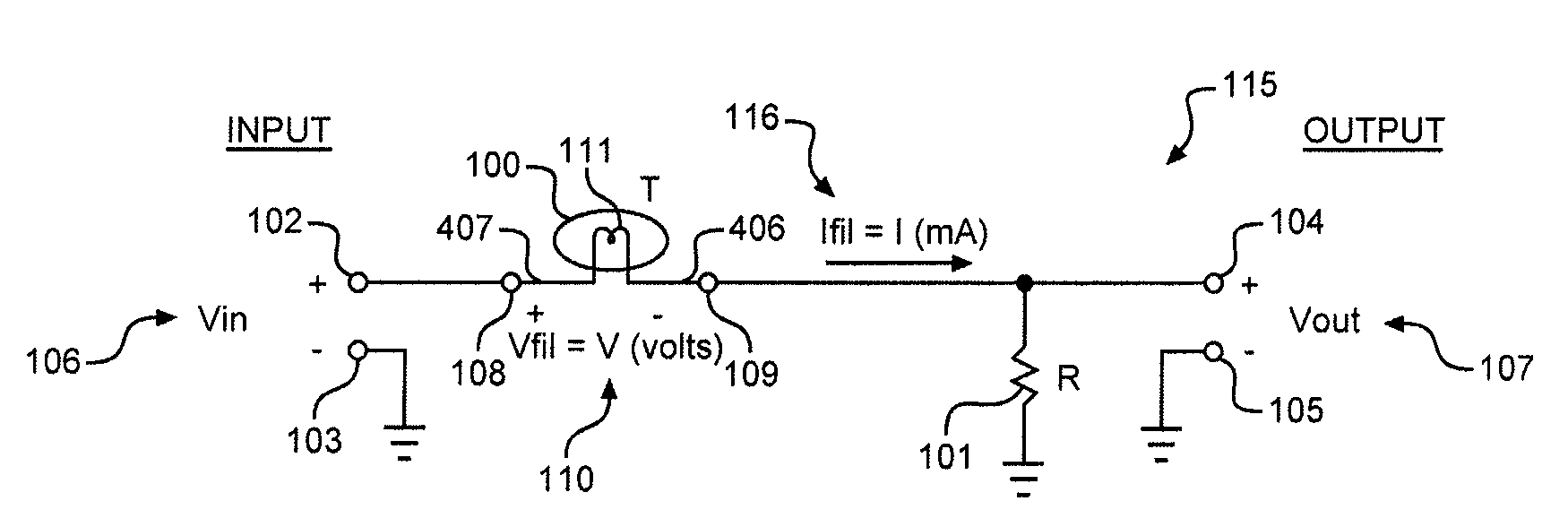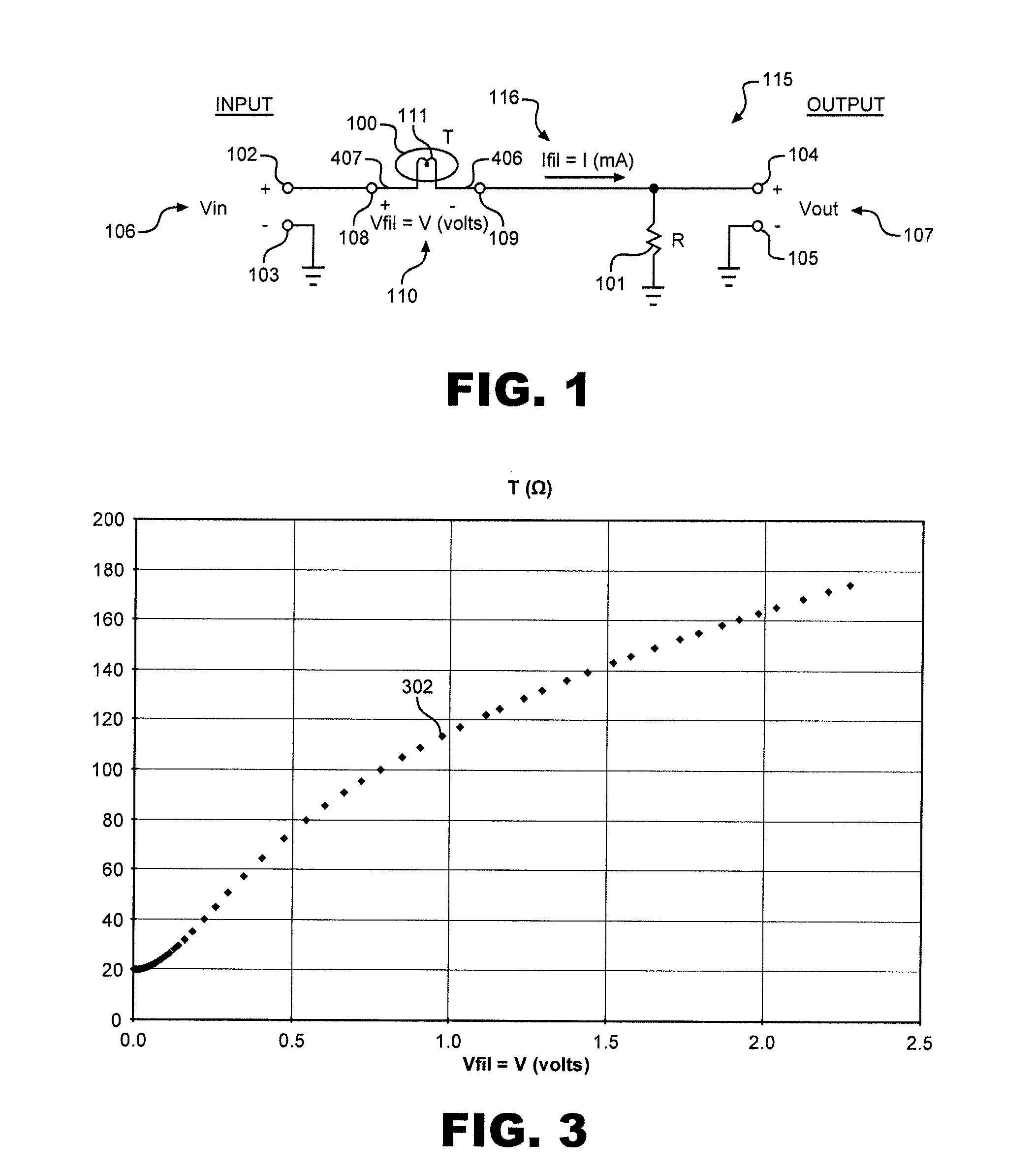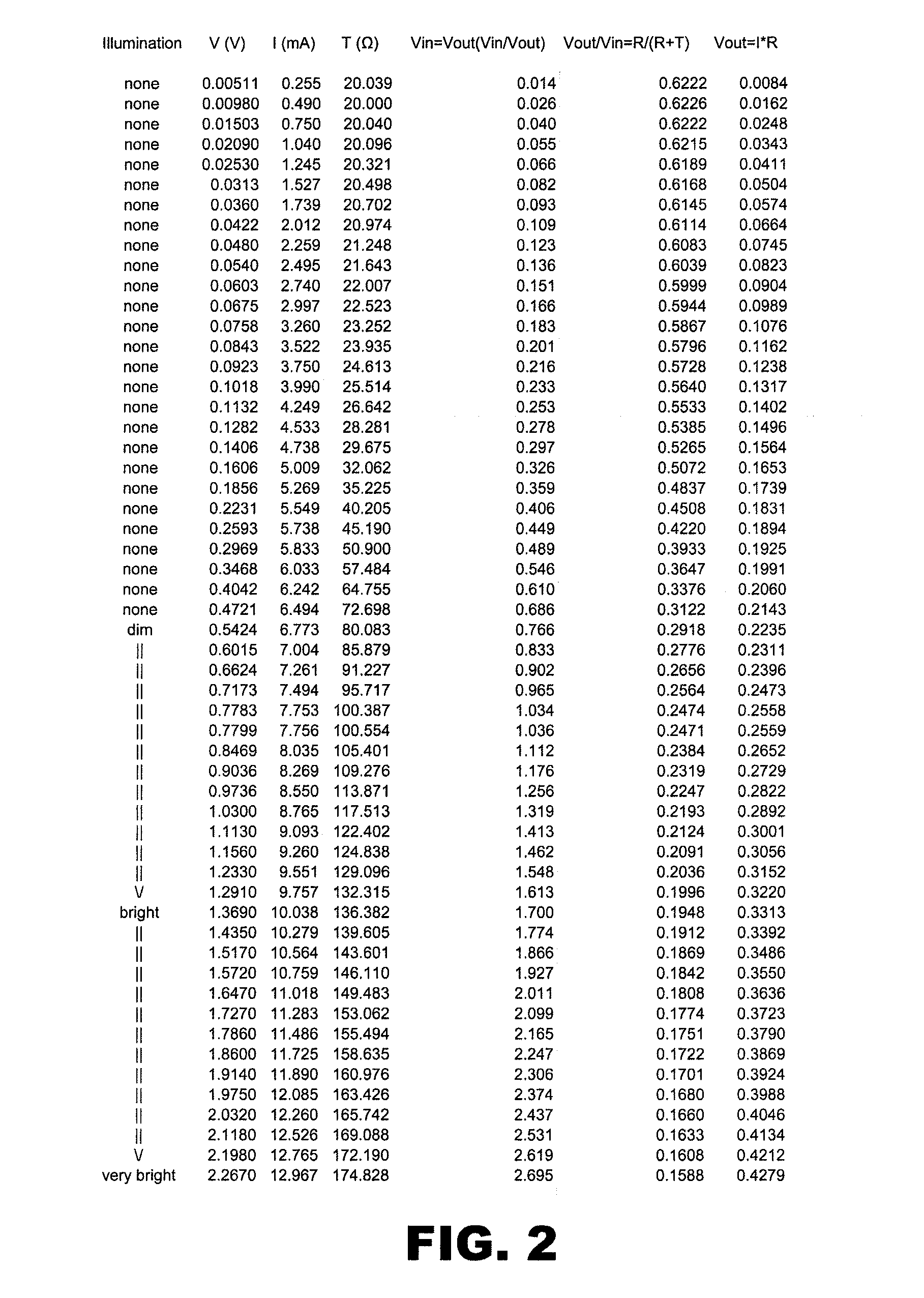Audio level compressor
a compressor and audio technology, applied in the field of audio signal processing, can solve the problems of accidental overload, high level of audio signal, temperature rise in filament, etc., and achieve the effect of convenient connection, improved harmony, and more reliability
- Summary
- Abstract
- Description
- Claims
- Application Information
AI Technical Summary
Benefits of technology
Problems solved by technology
Method used
Image
Examples
Embodiment Construction
[0062]FIG. 1 shows a compressor 115 comprising an incandescent lamp 100; a load resistor 101; a pair of input terminals 102, 103; and a pair of output terminals 104, 105. The lamp 100 has a filament resistance of T ohms, and the resistor 101 has a constant resistance of R ohms. In operation, an input audio signal 106 having and RMS value of Vin volts is applied to the input terminals 102, 103, and an output audio signal 107 having and RMS value of Vout volts is produced at the output terminals 104, 105.
[0063]The lamp 100 and the resistor 101 create a voltage divider where the input signal 106 (Vin) is divided between a filament voltage 110 (Vfil) and the output signal 107 (Vout). The filament voltage 110 is measured at lamp terminals 108, 109 and has a RMS value of Vfil volts, where:
[0064]Vfil=VinTR+T(1)
The output signal Vout measured at terminals 104, 105 is:
[0065]Vout=VinRR+T(2)
Equation 2 can be rearranged to give a transfer function
[0066]VoutVin=RR+T(3)
which determines the sign...
PUM
 Login to View More
Login to View More Abstract
Description
Claims
Application Information
 Login to View More
Login to View More - R&D
- Intellectual Property
- Life Sciences
- Materials
- Tech Scout
- Unparalleled Data Quality
- Higher Quality Content
- 60% Fewer Hallucinations
Browse by: Latest US Patents, China's latest patents, Technical Efficacy Thesaurus, Application Domain, Technology Topic, Popular Technical Reports.
© 2025 PatSnap. All rights reserved.Legal|Privacy policy|Modern Slavery Act Transparency Statement|Sitemap|About US| Contact US: help@patsnap.com



